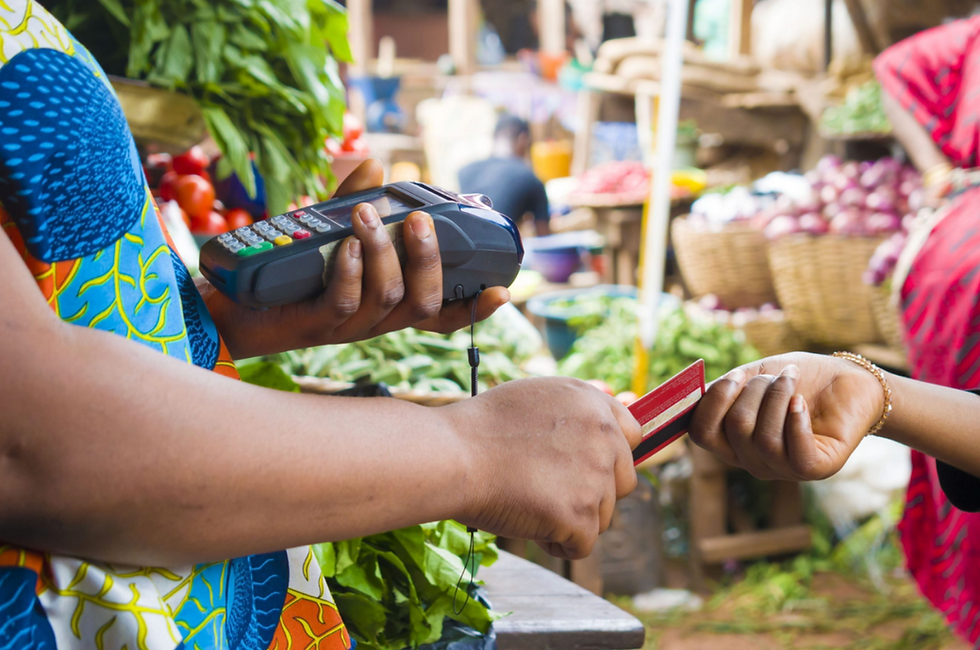United Nations Human Rights Committee Review Issues Recommendations on Civil and Political Rights Violations in the U.S. Food System
- alisoncohenrtf
- May 8, 2024
- 5 min read
Updated: Sep 9, 2025
May 8, 2024
By Zoe Henderson, Lily Arslanian, Kristina Bergman, and R. Denisse Córdova Montes


On September 12, 2023, the Human Rights Clinic at the University of Miami School of Law, in collaboration with members of the National Right to Food Community of Practice, submitted a shadow report highlighting widespread right to food violations in the U.S. This past October, the United Nations Human Rights Committee (The Committee) held its fifth periodic review of the U.S. for its adherence to the International Covenant on Civil and Political Rights (the Covenant). Over 70 civil society organizations traveled to Geneva to attend this review. The National Right to Food Community of Practice, supported by the Human Rights Clinic, traveled to Geneva to provide testimony on food injustice occurring the in U.S.
On December 7, the Committee issued important recommendations to the U.S. related to its failure to meet its human rights obligations.
In its concluding observations, the Committee addresses many fundamental rights violations which directly limit the realization of the right to food in the U.S.

“While the right to food is not an explicit right included in the Covenant, it is deeply connected to the right to life, a right that is enshrined in the Covenant,” said Photini Kamvisseli-Suarez, Student Fellow for the UM Law Human Rights Clinic. “Our shadow report framed right to food violations in the U.S. using the right to life as the overarching right.” According to the Covenant’s General Comment No. 36, States’ duty to protect the right to life includes “measures designed to ensure access to essential goods and services such as food, water, shelter, health care, electricity and sanitation[.]”
The review identifies at least six domains of violations that interfere with the right to food:
1. The Criminalization of Homelessness
The Committee calls attention to the dangers of criminalizing homelessness and reiterates its previous recommendations to abolish, and incentivize states to abolish, laws and policies which criminalize homelessness, promote adequate housing and shelter programs in an effort to find solutions for homelessness, and review practices within the criminal justice system that may lead to homelessness.

Homelessness can make it difficult to access available services including disability benefits, food stamps, and other cash benefit assistance programs. Our advocacy before the Human Rights Committee called attention to laws that have furthered the criminalization of homelessness including public feeding ordinances, like the Miami Public Feeding Ordinance. Our shadow report argued that the Ordinance effectively bans public feeding limiting accessibility and adequacy of food resources for those experiencing homelessness.
2. Rights of the Child
The Committee firmly recommends the termination of the permanent presence of law enforcement involved in student discipline.
Our shadow report detailed the impact of access to safe and nutritious food for children to grow physically and mentally healthy. Many children in the U.S. depend on school to access their meals. When this fails, children are left with the devastating effects of hunger and malnutrition like impaired learning abilities, developmental delays, and chronic illness. Hunger and malnutrition are also linked to poor behavior. Typically, disruptive behavior in school is disciplined without addressing root causes and with the increase in law enforcement mechanisms in schools, children are increasingly vulnerable to harsh disciplinary practices that push children towards the school-to-prison pipeline. This practice sets the child down a path that is exceedingly difficult to escape.
3. Poor Treatment of Asylum Seekers
We also welcome the Committee’s concern about the U.S. asylum process. The Committee critiques the lack of protections for asylum seekers which enable prolonged detention, separation of families, lack of adequate access to legal counsel, and poor conditions of detention centers including inadequate access to food and water among other essential services.

Our right to food advocacy in the U.S. has repeatedly focused on immigrants’ rights issues as restrictive immigration policies have affected the right to food of this underserved group and the health of our food system due to its reliance on immigrant labor.
4. Racial Disparities in the Criminal Justice System
The Committee recommends the U.S to not only prohibit and prosecute racial profiling but take steps to ensure that law enforcement officials at all levels are trained on ethnic and cultural awareness to prevent the targeting of marginalized groups. The Committee also recommends that the U.S. address how these communities are overrepresented in the criminal justice system by reducing unnecessary criminal justice interventions and harsh sentencing, increase incarceration alternatives, and ensure that sentences are proportionate to the offense committed.
Our shadow report discussed at length the links between our carceral system and right to food violations in the U.S. When individuals become involved in the criminal justice system, even when their time is long past served, life after can be incredibly devastating. It is often difficult to obtain employment and reintegrate into society and, in many cases, impossible to obtain financial assistance and food stamps.
5. Climate Change and the Right to Life
The Committee highlights that the climate crisis has led to a variety of negative outcomes including heavy floods, wildfires, extreme heat, high levels of lead leakage into water systems and outbreaks of disease. These outcomes particularly hurt vulnerable populations and the Committee recommends intensifying efforts to prevent and mitigate environmental degradation and prevent life-threatening water crises. The Committee also places emphasis on ensuring access to safe and clean water and we welcome the Committee’s explicit recognition of the right to water as a component of the right to life.
Our advocacy focused on detailing agricultural companies’ and extractive industries’ impacts on life-sustaining environmental resources, such as clean water and food supplies. Moreover, natural disasters can threaten and destroy food systems by damaging crops, destroying infrastructure, precluding transportation of food, displacing farmworkers, and contaminating water itself.
6. Rights of Indigenous Peoples
The Committee reiterates its previous recommendation to the U.S. to ensure the protection of the rights of Indigenous Peoples both in law and in practice. This includes guaranteeing access of Indigenous Peoples to their lands and sacred sites and protecting against harmful impact of extractive industries and toxic waste. The Committee also recommends the U.S. to engage in good faith consultations with Indigenous Peoples so that they are actively participating in any practice which may significantly impact their rights.
Indigenous Peoples’ food systems and land have been historically undermined. Federally recognized Indigenous communities have little sovereignty or protection over their land, territories, and natural resources. This is more than a property issue; Indigenous Peoples depend on these resources as a way of life, culture, and food systems. Activities like industrial farming, land theft, water contamination from various development projects, and loss of control over their land has contributed to the destruction of their food systems and hindered food sovereignty.
Next Steps
The next step, post-review, is for the U.S. government to disseminate information to the public about their rights outlined in the Covenant and inform the Committee on the steps they plan to take to address certain violations. The sixth periodic review will take place in 2031 and the Committee will assess U.S. progress in adhering to its commitments.
“We hope holding the U.S. accountable on an international stage for human right to food violations will underscore the need for coordinated food and farm policy that is rooted in the experience of small-scale food producers and those with lived experience of hunger in the U.S.,” said Alison Cohen, the National Right to Food Community of Practice Director and General Coordinator. “In the meantime, the National Right to Food Community of Practice and partners will continue advocating for the implementation of a human rights framework at the local, state, and national levels when addressing issues in the food system.”



